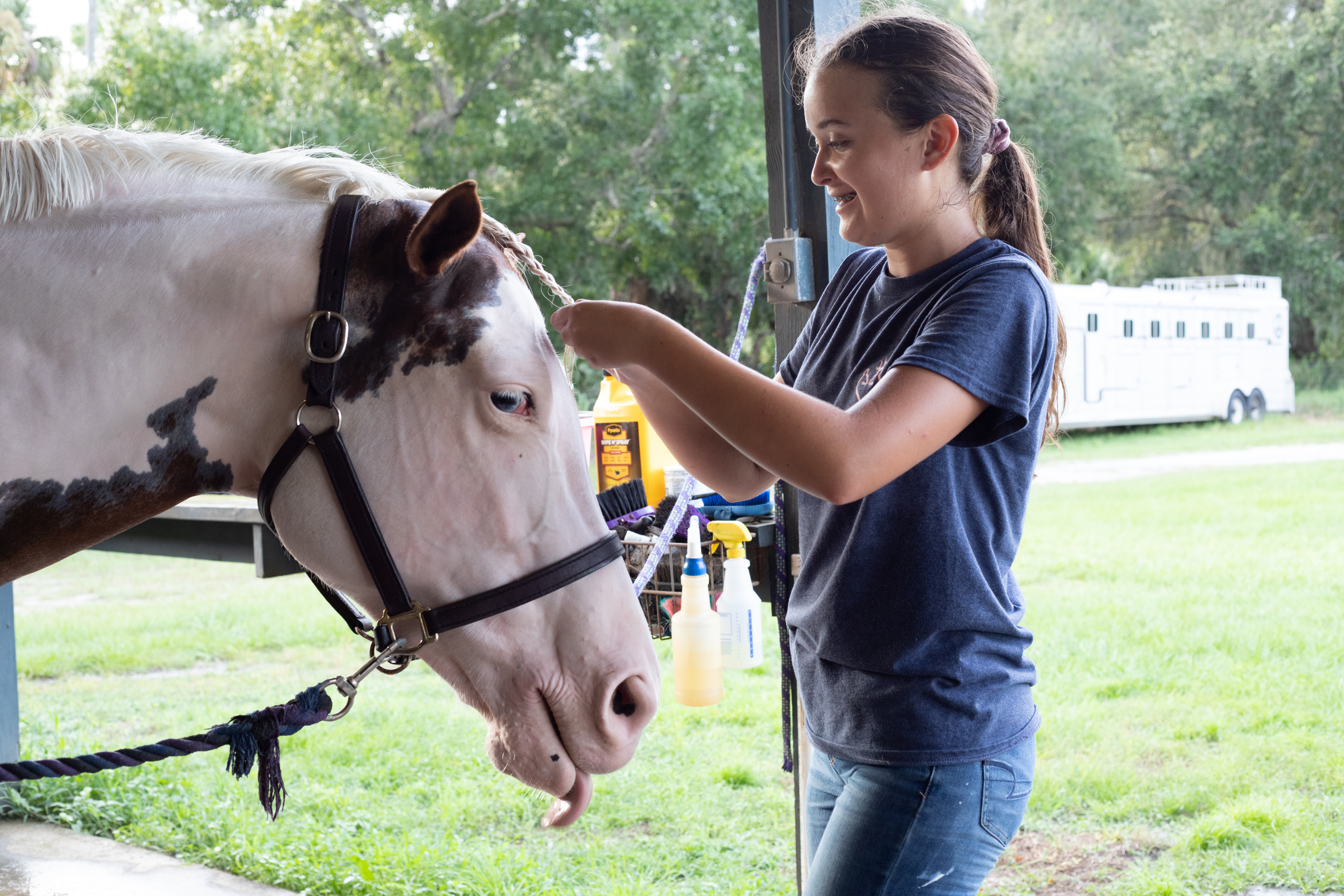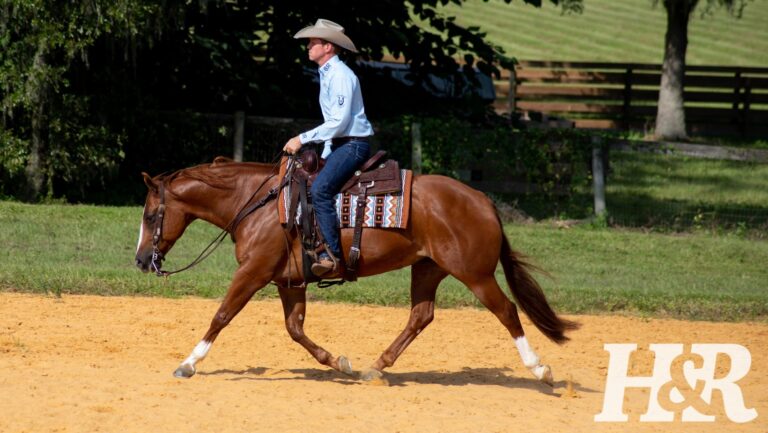Do you want to know the magic formula for greed? Take a horse. Throw in a human. Add money.

Greed is pervasive in the horse world. It causes people to make bad decisions. It drives prospective new horse people away. And it’s bad for horses, period. I’ll explain why as I illustrate five examples of greed I commonly see.
[READ: Make ‘Em Last]
1. Sellers
There’s nothing wrong with making money by selling horses. Shoot, I sell horses for a living. What is wrong is when a seller takes advantage of a buyer’s lack of experience. Two common ways are by selling a horse that’s ill-suited to the buyer’s riding skills (no matter the price, the horse should fit the rider) and/or selling a horse with an undisclosed problem. It happens way too often.
I’ve seen some people put the screws to naive, wealthy buyers. Doing so is incredibly shortsighted. We don’t have enough buyers as it is in the horse world. Why would you risk scaring one away for your own short-term gain?
Another thing that makes me crazy is when a trainer sells a mediocre horse to a big-time customer, then keeps the best horse in the barn for himself. Why would you do that? Big-money clients don’t grow on trees. I’ll always sell the best horse I own to a customer. Heck, I want my customers to be happy. That way, they stick around. They come back and buy other horses. We both win.
I have a customer who has deep, deep pockets. I save him money any way I can because I want him to stay in the horse industry. But I can tell you a lot of trainers would take advantage of him. They’re not thinking of anyone else, nor are they thinking of the future. They just want to make a quick buck. It’s stupid.
2. Breeders and Buyers
Greed rears its ugly head in the breeding shed in several obvious ways. One is the continued breeding of trendy bloodlines with known health issues. Certainly HYPP in the halter industry is one glaring example. Breeders (and buyers) are willing to risk a serious health condition to gain the muscle bulk that wins in the show pen.
Other, less-glaring examples exist. For instance, some top performance bloodlines are known to pass along OCD, navicular, and other career-limiting conditions. Yet, because such bloodlines sell, breeders keep cranking out those foals, many of which fall apart during the physical stress of training. But breeders keep breeding them, because buyers keep buying them. If the market for such bloodlines dried up, the breeders
who produce them would, too. Or, they’d have to change.
Speaking of production, multiple-embryo harvesting is another prime example of greed and why it’s bad for horses. I’ve heard of 10 embryos being harvested from one mare. That’s just wrong. A mare is born with a finite number of eggs; you could potentially flush embryos until she’s barren.
Plus, it’s a painful process. Yet some breeders will flush a really good young mare monthly. Not only will the mare suffer, but she could end up barren at a relatively young age. Why? Because the humans around her are greedy. It’s that simple.
3. Management
I think all of us do things with our horses that we wouldn’t have dreamed of doing 20 years ago, when there was less money to be won. For instance, if a horse gets sore before a big-money futurity, rather than giving him time off, we’ll inject him or medicate him and keep on pushing. The blame here falls on both owners and trainers.
The owners will say, “Hey, I have a lot of money in that horse. I want him to show.” The trainers are motivated not only by the owners, but by the lure of prize money and a win. Both are good for business, but not for horses.
Sure, technology has come a long way, so we can inject joints, and we have systemic medications that are beneficial. But let’s face it: Sometimes rest is the best call for the horse. If money weren’t involved, it would be a no-brainer.
I’ve learned this the hard way, but I’m putting that lesson to good use. For example, I only have one futurity horse this year because I’ve sold all the other ones I had. This mare is not handling the pressure of futurity prep well.
So I made a tough decision—I’m not going to show her this year. I don’t want to wreck her. I’d have to push her too hard and would risk blowing her up physically or mentally.
You’ve probably seen horses that are stressed like that. They can get too thin. Legs might swell. They get sick. Those signs are wakeup calls to ignore the lure of the dollar and back the heck off.
Now, I’m no saint, but that’s how I learned. When I lived in Oregon, I bought a weanling stud colt, then hauled him to the AQHA World Championship Show in Oklahoma City that November. He won a reserve world title there, and I sold him for a lot of money. But I didn’t do right by the horse.
It was a long, stressful haul for him in winter weather. He got a little sick. I felt bad afterward. I’ve never done that again to a weanling. It’s too hard on those youngsters. It was a wakeup call. Putting a horse through that wasn’t worth the money I made. I wish more people would learn that lesson. Horses would be better off if they did.
4. Parents
Just as trainers and owners can pressure a horse beyond his limitations, parents can push their kids too hard. They do it for the trophies or for their own satisfaction. It’s greed.
I know the feeling. I have a son. But I also know that sometimes we need to back off and take care of our kids (and our horses). I just got back from a high-school rodeo finals. I saw a lot of parents pushing their kids. And some of those kids popped under the pressure, just like horses do. The difference is, kids can fire back verbally. Horses can’t.
It’s okay to want to be good, to want your horse to be good, or to want your kid to be good. But if you put that emotional greed ahead of everything else, things fall apart.
5. Desperation
If you show up at a horse show having to win money, say to make a truck or mortgage payment, guess what comes first? Hint: It’s not the horse. That desperation is a form of greed. The horse becomes a means to an end.
I’ve never gone to a horse show having to win money, “or else.” But I know trainers who have. I make my living at home. I go to horse shows because they’re fun, and they’re a good way to test my horses’ progress.
When you start showing and/or training horses because you have to do it, find another way to make a living. If you don’t, your horses are going to suffer. When greed overtakes your compassion for the animal, things are going to get ugly.
Don’t get me wrong: We all need money. But if you love horses, you’ll always put them—not the greenbacks—first.
Are You Greedy?
To avoid falling into the greed trap, ask yourself the following questions before you make a horse-related
decision that’ll be impacted by the almighty dollar:
- How will this decision affect my customers (if applicable)?
- How will it affect my business and/or my reputation?
- How will it affect the industry? (Could it drive people away?)
- Will it help the horse and me in the long term—not just the short term?
- Is this the right decision for the horse?






